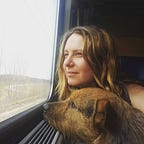Strengthening the Black Social Economy
How to bring the benefits of ROSCAs (Rotating Credit and Saving Associations) to wider society while protecting the grassroots organizers who steward this ethical alternative to banking.
Women of the African diaspora in Ontario, Canada and beyond operate ROSCAs (Rotating Credit and Saving Associations) — systems that build trust and mutual aid among communities, while helping members save money and avoid the racism they often face from the conventional banking system. The Banker Ladies Council was set up as part of the Black Social Economy Project, led by Dr. Caroline Shenaz Hossein of the University of Toronto Scarborough (UTSC), and is kindly funded by The Co-operators Group.
The Banker Ladies’ first meeting explored why ROSCAs are so important to women of African descent. Their second meeting took the project to an exciting next stage, with discussions about how to highlight the benefits of the Black Social Economy in transforming unequal economic systems in wider society, and how to reduce the harm experienced by ROSCA organizers. Drawing on their expertise from decades of lived experience, the council came up with three key next steps.
1. Garnering recognition
For ROSCAs to succeed at scale, and for those operating them to avoid harm from governments, police, and financial institutions, the Banker Ladies agreed that they should be recognized — but not regulated. The council also agreed that ROSCAs need to be accepted and recognized by society at large, and that this can be progressed by asking ROSCA members to share stories with their communities. Many, as member Andria Barret pointed out, use their ROSCA money to buy cars, homes, and send their children to school.
Many members use their ROSCA money to buy cars, homes, and send their children to school.
Society-wide recognition could be boosted by the cooperative sector, through collaboration with Credit Unions, which bear similarities with ROSCAs in that they are an ethical, not-for-profit banking alternative that keeps money circulating in local communities. Desjardins, for example, have funded a community savings and wealth program since the 1970s; and Alterna’s focus on its members’ wellbeing is well-aligned. Meanwhile, the council aired its intention to take a multi-pronged approach to gaining recognition for ROSCAs, including connecting with the Canadian Credit Union Association — which is actively seeking ways to ensure equity and diversity — as well as various other member-owned institutions and policy makers.
2. Education and outreach
Education also plays a central role. Existing financial literature and discourse contain no mention of the ROSCA system, and in order to change this it’s important to use ‘mainstream’ financial terminology when talking about ROSCAs and their value. At the same time, the council noted that current models and values of formal banks are not working for people, especially youth. That’s why it was deemed essential to build a financial literacy structure that focuses on training people to build resilience for post-pandemic work, including developing skillsets for setting up a ROSCA — for example, how to pool money for a downpayment on a house.
It’s essential to build a financial literacy structure that focuses on how to set up a ROSCA — for example, pooling money for a downpayment on a house.
For the ROSCA model to spread, there is also a need for templates or guidelines that outline how to set up a community rotational savings scheme and make it successful. By going out into their communities to train and educate people about ROSCAs, members can also amplify their benefits in a local context. Existing examples include the Jane-Finch Parent Group Navigator, which is a community organized financial literacy program that covers ROSCAs; and the WMRCC, which helps vulnerable women and has set up a number of cooperatives as a way to reduce dependency and build a support system. And while ROSCAs can help women build their cooperatives financially, they are also systems of solidarity. As members Lorraine Anderson and Asha Abubakar noted, women come together not just for the money but for collectivism.
ROSCAs are systems of solidarity.
Finally, another approach to harm reduction could include approaching and educating the police in a spirit of collaboration.
3. Create a cooperative federation
The council decided unanimously to build a cooperative federation (a cooperative in which all members are themselves cooperatives). The ROSCA Federation will act as an overarching entity to work with different ROSCA communities, as well as connect and advocate on behalf of its members to institutions and policy makers.
Creating a federation opens opportunities for funding, allows Banker Ladies to lead training sessions, and encourages ROSCA practices within other coops.
A ROSCA Federation would open opportunities for funding. It would be subsidized, and requires one staff member to undertake the necessary organizational and advocacy work. Furthermore, the federation will fund Banker Ladies to lead training sessions around the country, starting in the Greater Toronto Area. A federation can also audit coops and banks, and encourage ROSCA practices within these institutions.
As the Banker Ladies work towards this groundbreaking next step, they are currently considering key questions, such as what banking looks like in solidarity economies; what language can be understood by all the women who are, and might be, involved; and — importantly — what the federation should be called. Meanwhile, a working group of council members formed to create a funding proposal for the new ROSCA Federation.
Inspired to act? Find out more…
- Meet the Banker Ladies in this inspiring short film.
- Learn about the Black Social Economy and how Black communities across the world create meaningful livelihoods by forming their own economic arrangements, autonomous from capitalist and exploitative labor practices.
- Listen to the Diverse Economy Conversations for Youth podcast, which highlights academics and leaders in the field of feminist political economies.
- Find out about ROSCAs across the world in Community Economies in the Global South: Case Studies of Rotating Savings, Credit Associations, and Economic Cooperation, edited by Caroline Shenaz Hossein and Christabell P.J.
